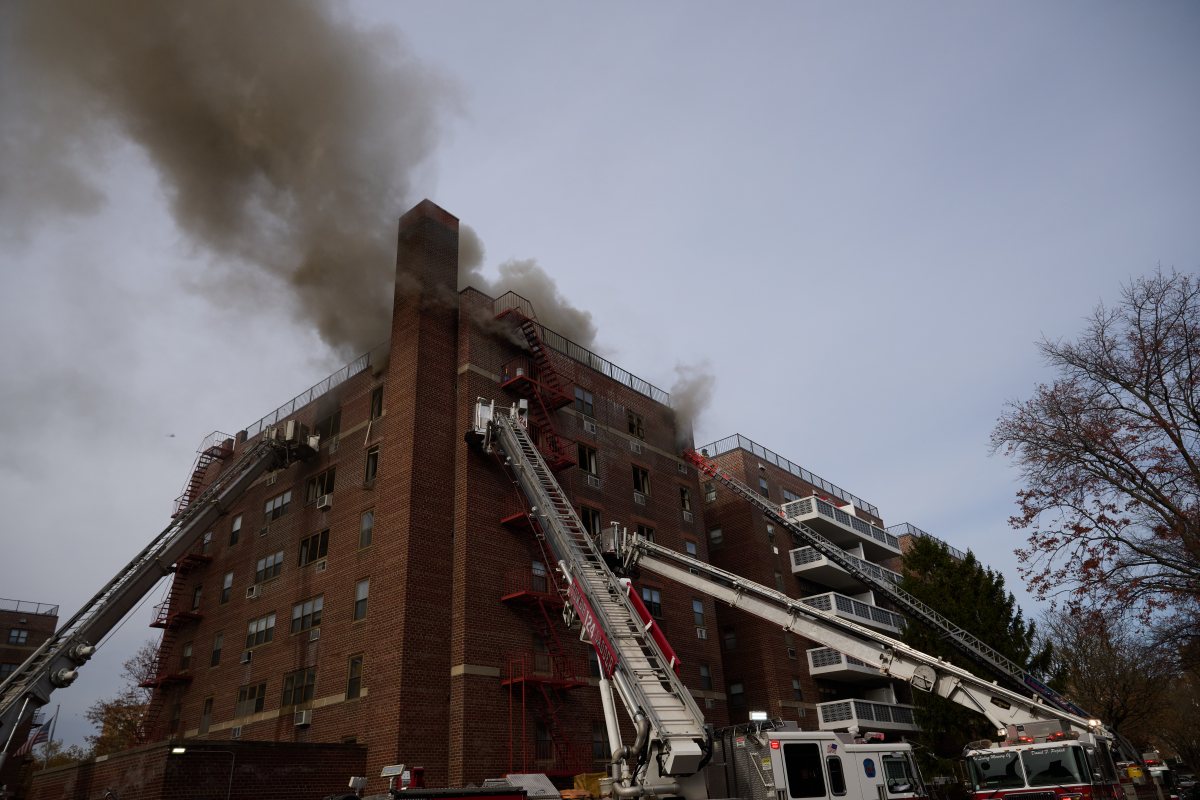By Jefferson Siegel
Monday night, a group of activists demonstrated in front of the Continental, on Third Ave. at St. Mark’s Place, to condemn what they claim is the bar’s door policy of racist and discriminatory behavior that denies entry to blacks and gays.
However, the bar’s owner, who identified himself as Trigger Smith, denied the accusations. Most know him simply as Trigger.
“I do have a dress code, I don’t have a color code,” Trigger said in an interview on Wednesday morning.
Trigger’s denials come despite accusations of racism by the ANSWER (Act Now To Stop War and End Racism) Coalition and by numerous complaints on Web sites.
There is even a Facebook page criticizing the bar, Boycott Continental Bar in NYC (https://www.facebook.com/group.php?gid=58211944728&v=wall).
Some of the comments by the page’s 131 members include one from August 2010, when Robert Cabassa wrote, “Last year I was turned away for ‘baggy clothing’ while caucasian kids with flip flops, shorts and t-shirts were being let in without a second look. Racist, without question. The bouncer admitted it, as well, but said there was nothing he could do about it, since it was his job to do what the owner says.”
Web posts on Clubplanet.com, Yelp.com and New York magazine’s Nightlife site have also charged racist treatment by the bar’s staff.
“There are a lot of people up in arms over my door policy,” Trigger said. “I’m paying New York rents. I’m not going to let anyone else run my business.”
In the bitter cold last Monday night, Shaniqua Pippen, 25, from Brooklyn, stood quietly with other protesters while holding a sign reading, “Stop Racial Profiling.”
Last June, Pippen said she and three friends, after eating at a nearby restaurant, decided to cap their Saturday night with some drinks. Walking by the Continental and its prominent sign declaring, “5 Shots of Anything $10,” they tried to enter.
Although Pippen noticed the bar was nearly empty, she said a bouncer told her and her friends that they were not allowed to enter, “because we had to be a regular or they had to know us.”
Pippen asked the bouncer about the handful of people who had entered just before them.
“If you know all these people, why are you still checking their ID’s?” Pippen asked, saying the bouncer replied that he didn’t make the rules.
“Do we need to be regulars or do we just need to be white?” Pippen pressed on, saying the bouncer, who was black, replied, “Your people don’t know how to act.”
Pippen told a friend about her experience, who referred her to ANSWER. That group sent a letter to Dominic Pisciotta, chairperson of Community Board 3. Jinnette Caceres, a community organizer with ANSWER, said C.B. 3 forwarded the complaint to the New York City Commission on Human Rights.
Trigger said the longevity of the Continental, which he has owned almost 20 years, can be traced to its door policy.
“Within six months, these flash-in-the-pan new clubs are closed when there’s no door policy,” he said. “We probably turn away more people than these hot, trendy Meatpacking clubs.” Until a few years ago, the Continental was a live-music club known for punk rock. But Trigger said only now that he has transformed it into a bar is he finally turning a profit.
“I don’t have a racist bone in my body,” Trigger said, adding he even took out an ad in a local paper celebrating Barack Obama’s 2008 victory. Trigger, who grew up in Brooklyn, said Caceres wanted him to meet with Pippen in the ANSWER office. Trigger suggested a neutral location but ultimately the meeting didn’t happen.
“There are people, black, brown, in my bar seven nights a week. I’m very offended by all of this. I’m not giving in,” Trigger vowed.
Wednesday afternoon Pippen was scheduled to meet with an attorney from the Commission on Human Rights. Betsy Herzog, a commission spokesperson, noted there is already one complaint outstanding against the Continental.
“The bar is under investigation,” she said.
The commission’s investigation could result in fines, the awarding of damages or mandating a policy change. If an issue can’t be settled by the commission, the next step is court.
ANSWER plans to picket the Continental this Sat., Jan. 29, at 8 p.m.


































